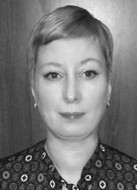Healthy lifestyle promotion in academic physical education process
Фотографии:
ˑ:
PhD, Associate Professor L.V. Yarchikovskaya1
PhD, Associate Professor V.N. Kovalenko2
PhD, Associate Professor O.V. Mironova1
PhD, Associate Professor A.V. Tokareva1
PhD, Associate Professor О.N. Ustinova3
1Saint Petersburg State University, St. Petersburg
2Saint Petersburg State University of Architecture and Civil Engineering, St. Petersburg
3Peter the Great St.Petersburg Polytechnic University, St. Petersburg
The study analyses results and benefits of a healthy lifestyle promotion model piloting experiment designed to improve the university students’ health and adaptive capability standards. The study data were applied to classify the health lifestyle building process into five interrelated stages and to substantiate and offer the healthy lifestyle promotion model to build new knowledgebase, skills and abilities for healthy lifestyle in the academic physical education curricula of Saint-Petersburg universities.
In the healthy lifestyle promotion model piloting experiment, the students learned basics of self-reliant physical trainings, hygiene, self-control, self-massage practices and behaviours to prevent diseases and bad habits and master elementary therapeutic physical culture and active recreation procedures. The study data show high benefits of the healthy lifestyle promotion model piloting experiment and give the grounds for the young people’s health protection and improvement initiatives.
Keywords: healthy lifestyle, motor qualities, physical activity mode, bad habits, body tempering practices, physical culture.
References
- Baturin A.E., Volskiy V.V., Kovalenko V.N., Pomogaeva N.S. Eksperimentalnaya proverka modeli fizicheskoy trenirovki voennosluzhaschikh mirotvorcheskikh sil [Experimental check of physical training model for servicemen of peacekeeping forces]. Uchenye zapiski un-ta im. P.F. Lesgafta, 2017, no. 9 (151), pp. 32-37.
- Bolotin A.E., Mironova O.V., Lukina S.M., Yarchikovskaya L.V. Soderzhatelnye i organizatsionnye aspekty formirovaniya navykov zdorovogo obraza zhizni u studentov vuzov [Healthy lifestyle skill building technology for university students: conceptual and procedural aspects]. Teoriya i praktika fiz. kultury, 2016, no. 6, pp. 18-20.
- Efimova-Komarova L.B., Tokareva A.V., Getman V.D. Samokontrol i metody otsenki fizicheskogo i funktsionalnogo sostoyaniya studentov. Ucheb. posobie [Self-control and methods to assess students’ physical and functional states. Study guide]. SPbSASU publ., St. Petersburg, 2016, 101 p.
- Mironova O.V., Lukina S.A., Yarchikovskaya L.V. Soderzhanie pedagogicheskoy tekhnologii formirovaniya navykov zdorovogo obraza zhizni u studentov vuzov [Essence of educational technology of healthy lifestyle skills building in university students]. Sb. nauch. trudov XIV Mezhdunar. nauch.-prakt. konf. “Sotsialno-pedagogicheskie aspekty fizicheskogo vospitaniya molodezhi” [Proc. XIV Intern. res.-pract. conf. “Socio-pedagogical aspects of physical education of youth”]. Ulyanovsk: USTU publ., 2016, pp. 214-223.
- Yarchikovskaya L.V., Koval T.E., Lukina S.M., Ustinova O.N Mesto dykhatelnykh uprazhneniy v kombinirovannykh ozdorovitelnykh programmakh [Role of breathing exercises in combined health programs]. Teoriya i praktika fiz. kultury, 2017, no. 10, pp. 35-38.




 Журнал "THEORY AND PRACTICE
Журнал "THEORY AND PRACTICE